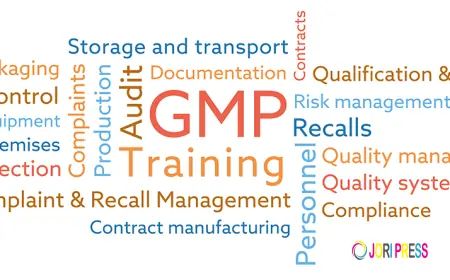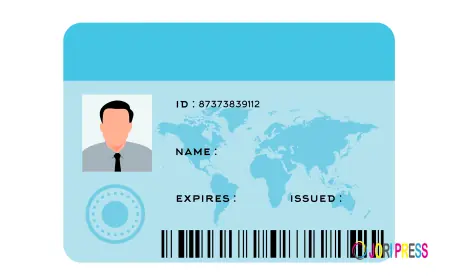How Much Does It Cost to Study in the UK? Full Breakdown for 2025
Curious about the cost to study in the UK in 2025? Here’s a complete breakdown of tuition, housing, food, and more to help you budget wisely.

Studying in the UK: A Smart Investment
Planning to study in the UK? It’s one of the most popular choices among international students. World-class universities, diverse cultures, and global career opportunities make the UK a top destination.
But before you apply, it's important to understand the financial side. From tuition fees to daily living expenses, knowing the full cost will help you budget wisely and avoid surprises.
Tuition Fees: Your Biggest Expense
Undergraduate Programs
For international students, tuition is often the largest cost. In 2025, fees for undergraduate courses in the UK vary by subject and university.
-
Humanities and social sciences: £11,000–£18,000 per year
-
Science and engineering: £13,000–£22,000 per year
-
Medical degrees: £30,000–£40,000+ per year
These numbers are general estimates. Some universities may charge more, especially if they're ranked higher or located in London.
Postgraduate Programs
Postgraduate fees also depend on your course and school. On average:
-
Taught Master’s: £12,000–£25,000 per year
-
MBA programs: £25,000–£50,000 per year
-
PhDs: £15,000–£24,000 per year (some fully funded)
If you’re aiming to study in the UK, be sure to compare tuition across universities and explore scholarships early.
Accommodation Costs
Living in University Halls
Many first-year students stay in university-managed halls. These are usually fully furnished and close to campus.
-
Average cost: £400–£800 per month
-
Includes bills (electricity, water, internet)
Some halls offer meal plans, which can save time and money.
Private Rentals
In your second year and beyond, you might choose to rent a flat with friends. Private rentals offer more freedom but also more responsibility.
-
Rent: £350–£700+ per month (outside London)
-
Rent in London: £700–£1,200+ per month
-
Bills: £60–£100 per month
Location matters. Cities like Manchester or Birmingham are more affordable than London.
Everyday Living Expenses
Food and Groceries
Grocery shopping in the UK can be affordable if you plan well. Cooking at home saves money.
-
Weekly grocery cost: £25–£50
-
Monthly total: £100–£200
Eating out adds to the budget. Expect to pay £10–£15 for a casual meal.
Transport
Student discounts help lower travel costs. Depending on where you live:
-
Monthly bus pass: £30–£70
-
Train (occasional): £10–£50 per trip
-
Cycling is popular in university towns
In London, an Oyster card or contactless payment helps manage transport easily.
Additional Academic Costs
Study Materials
Books, supplies, and printing add up fast.
-
Books and course materials: £200–£400 per year
-
Printing, software, and online tools: £50–£100
Many universities have e-libraries and group access to premium content. That saves money in the long run.
Field Trips and Equipment
Some programs require lab coats, cameras, or field trips. Ask your department for any additional course-related costs. These are often not included in tuition.
Visa and Health-Related Costs
Student Visa Fee
The UK Student visa application costs:
-
£490 (as of 2025)
-
You must also pay the Immigration Health Surcharge: £776 per year
This gives you access to the UK’s NHS (National Health Service). You don’t need private health insurance.
Arrival Costs
Set aside money for your initial weeks:
-
Flights: £400–£900 (depending on origin)
-
Airport transfer, initial groceries, bedding, etc.: £200–£300
-
First month’s rent and deposit: up to £1,500
Planning ahead will keep your arrival stress-free.
Entertainment and Social Life
Staying Active and Connected
Life in the UK isn’t just about studying. Social life, sports, and hobbies matter too.
-
Gym membership: £20–£50 per month
-
Club fees: £20–£100 per year
-
Streaming and mobile data: £10–£30 per month
Budgeting for fun helps you balance academics and personal well-being.
Travel and Holidays
The UK and Europe offer amazing travel options. Students often explore nearby countries during breaks.
-
Budget travel: £100–£300 per trip
-
Use student travel cards and low-cost airlines for cheaper fares
Travel is part of the learning experience, so plan it into your budget.
Tips to Reduce Costs
Scholarships and Grants
Many universities offer financial aid to international students. Common options include:
-
Commonwealth Scholarships
-
Chevening Scholarships
-
University-specific merit-based grants
Apply early. The competition is strong.
Student Discounts
Use your student ID to get discounts on food, transport, entertainment, and clothing. Apps like UNiDAYS and TOTUM are widely accepted.
Even museums, cinemas, and coffee shops offer special student rates.
Final Thoughts: Plan Smart, Study Smooth
To study in the UK in 2025, budgeting is key. The cost is significant, but the value is immense. A UK education offers strong academic and career returns.
With careful planning, scholarships, and smart spending, your study journey can be both affordable and rewarding.
Make a plan. Set your budget. And take the first step toward a bright academic future in the UK.
What's Your Reaction?
 Like
0
Like
0
 Dislike
0
Dislike
0
 Love
0
Love
0
 Funny
0
Funny
0
 Angry
0
Angry
0
 Sad
0
Sad
0
 Wow
0
Wow
0


















































